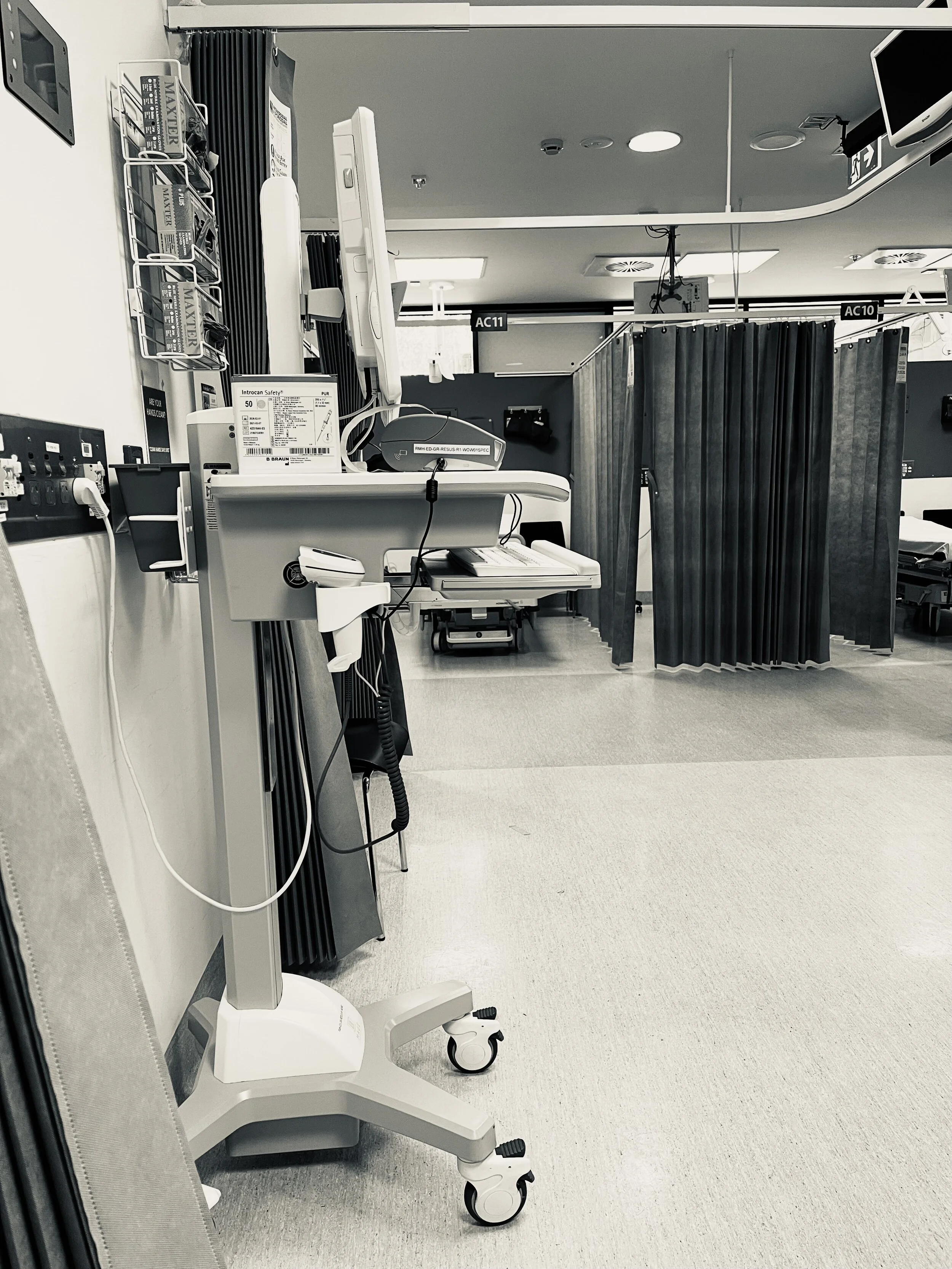A Headache, and an Inconvenient Day
Royal Melbourne Hospital Emergency Department
Four hours in the emergency department of a large metropolitan hospital. Two rounds of blood tests to determine that I did, in fact, only have a mild headache, and not the onset of blood clots associated with a certain vaccine. An abundance of caution, perhaps - but not unwise. As I told the triage nurse, I was only following the doctor’s health advice.
The day continued with an irritating meeting, one of a series in recent times, following which our office was brazenly burgled while we sat in the front room. We only realised it was happening when said burglar tripped over a chair leg.
Altogether an inconvenient day. However, not really a bad one by global standards. Look only to Afghanistan, for instance, or even closer to home, the impact the pandemic is having on many in my own city.
I noticed my reaction to these events: a quiet, observational peacefulness - I was not ruffled, not disrupted, not terribly put out by this compact string of less-than-optimal events. Could my equanimity be a direct product of daily meditation for nearly two years?
I was not shaken by a brush with a burglar, or by four hours of mind-numbing (and seemingly endless, at the time) waiting in an uncomfortable chair in a grey emergency department. I was not even annoyed when they had to retake my bloods as a result of a printing systems glitch that mixed up the labels on the first batch.
Not perturbed by any of this - and of course, I have heard many times that the place to see evidence of the benefits of mindfulness meditation is in day-to-day life, rather than during the sessions themselves. My day: a friend expressed commiseration for my ‘bad day’, but it was one that I felt was merely mildly inconvenient - could this be the evidence the meditation teachers speak of?
Pessoa was not a happy fellow, I suspect, if that matters at all. He was a self-articulated absence in the empty, narrative-less history of his own much-divided personality. He had volumes to say about very little indeed, if one was merely to estimate the fulness of his life from the sum of its narrative threads and activity. Not much happened to him, and he didn’t really go anywhere, once he landed in Lisbon.
Nevertheless, he had a great deal to say about life in general, much of it truly profound. As for me, I do not feel like a Pessoa-like absence in myself, much less a divided and multiplied series of heteronymic identities, each with a distinctive voice. Nevertheless, I take great pleasure from reading Pessoa and I admire (and would emulate, if at all possible) his ability to make robust bricks from the seemingly useless clay and straw of his thin, mundane, external daily life.
Pessoa saw no need to travel physically, which I admire. He was a counterpoint to the common wisdom that it is travel that broadens the mind. He named this endeavour as vastly inferior to the expansive roaming he had undertaken in his soul and in his own mind. There was, for Pessoa, nothing ‘out there’ that could act as revelation and education so profound as the journeying he had done in the expanses of his own (vacant) inner self, while his body barely strayed from the same streets of Lisbon throughout an adult life cut somewhat short.
I am not sure what is drawing me to him, but I am finding something of a personal parallel in the mix of ingredients found in the Book of Disquiet, some strange affinity between the Book of Disquiet and the mindfulness meditation that has crowned and terminated each of my days for the last two years. Pessoa’s life resembled that of his semi-heteronym Bernardo Soares (a self-described ‘mutilation’ of his own personality) - walking and looking down upon the familiar streets of the city he knew; Soares’ dull and never-changing office with its desk, windows, ledgers and endless daily routines; his far-from-remarkable coworkers; returning nightly to his rented room with its cracked walls; the restaurant on the second floor that he frequented, day after day.
And yet, within this utterly mundane and static framework vast personal interior landscapes unfold; deep chasms of emotional intensity are revealed; loss and indifference play out against his undeniable desire - often, the desire only for a species of embraced nothingness, or at least the opposite of commitment to action.
I have no idea where this is all going, and what will come out of it. For now, I follow my threads, and as usual, I will not rush a gestation of ideas that need time to fully emerge.
